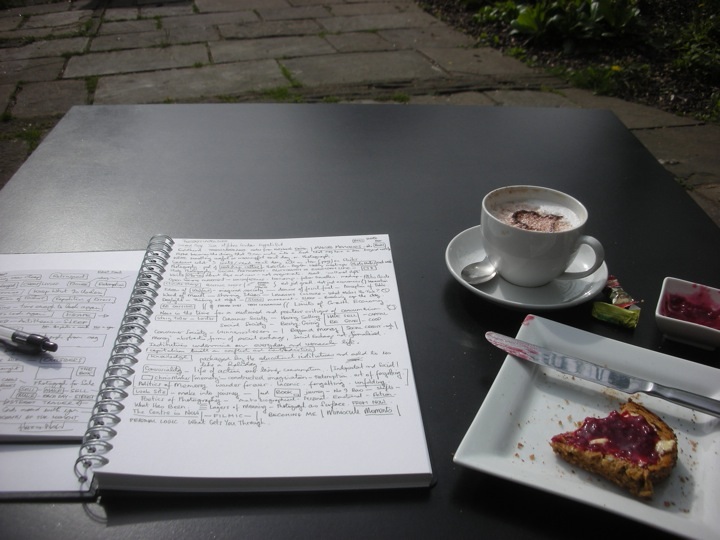Click to set custom HTML
So here's an idea I had last night. How about a #PublicHealth Day on Twitter? A day when everyone who works in, studies, or takes an interest in public health, tweets interesting stuff, and uses a suitable hashtag (#PublicHealth, PublicHealth13)? And the people who are already tweeting interesting stuff just carry on, but include the hashtag every time they tweet.
The aim would be to get #PublicHealth trending on Twitter, to raise awareness (and engagement with) the work that researchers, policy makers and practitioners are doing, and to generate lots of new followers for public health tweeters. We could do it in the summer on a 'slow news' day, and hopefully get some media attention. Has anyone ever done this? Is it a good idea, and would you be up for it? Jeremy and Anna are looking for someone new to host #acwri on Twitter, initially to cover Anna while she goes on maternity leave. An explanation of what #acwri is can be viewed on the PhD2Published website here but it is essentially a well-established Twitter community consisting of academics from various career stages, disciplines and countries, that discusses all things academic writing. While facilitating an ongoing conversation, Jeremy and Anna use the hashtag to host live chats on a fortnightly basis and post summaries of these chats as useful resources on PhD2Published and Jeremy’s website.
How you can benefit from involvement Hosting #acwri is a great opportunity to develop your career, to learn about and share knowledge of academic writing and to be affiliated with pioneering academic social media projects such as PhD2Published. You will gain skills in running Twitter conversations, networking more widely with a diverse range of scholars, learning how to use social media platforms such as Storify and be given access to PhD2Published to post summaries. Anna reflects further on how involvement has benefitted her here. Interested? What will be expected of you? Knowing how busy academic life is, you’ll be pleased to know that hosting #acwri is not a huge time guzzler; it’s therefore great for your career and doesn’t take too much time. There are certain tasks that do need completing however. These include: · Working with Jeremy to determine topics for the live chats, relating to academic writing. Regular monitoring of the #acwri Twitter feed is also essential to determine topics of relevance to the existing community, · You will need to dedicate at least one hour a month to chairing a live chat (#acwri live chats run every Thursday fortnight at 8pm, UK time), · You will write summaries of the chats using Storify and post them to PhD2Published in an appropriate time frame (training in this will be provided in advance). Still interested? If so, please submit a 250-word summary either to [email protected] or [email protected] by Thursday 28th March 2013 illustrating why you think you are the best person for the role. You should reflect on why you think you are the best person to run the chats, your social media experience and how you expect involvement will benefit your career development. Jeremy and Anna will use this to choose the new host who will be expected to take on responsibilities mid-April 2013. With several colleagues I am working on updating a systematic review of tools and interventions in primary care to reduce vascular risk factors. It's an interesting study, and it's taught me a lot about the process of actually doing a systematic review.
We've just reached the end of screening paper titles and abstracts to determine which papers should be included (and the full text reviewed), and which should be excluded, based on our inclusion criteria. Systematic reviews are, well, systematic. That makes them hard work. They need to be well designed with clear research questions, appropriate inclusion/exclusion criteria, and a clear search strategy. Having support and input from information specialists at SURE has helped us a great deal at various points in the study, and I am lucky to be working with colleagues who know how to design an Access database and other systems we needed. So much of the work seems to involve screening titles and abstracts, with many papers being excluded for every one paper that is included. Screening is hard work, with the need to work quickly, accurately and repetitively through hundreds - often thousands of papers. I've only done a small portion of the screening of the papers. It was a good experience because when the medical student who has done most of the screening talks about what she's been doing, I think I now have a greater appreciation of just how much she's done, and how hard the process can be sometimes. It's difficult to achieve sometimes in busy schedules, but maybe it's good for all of us to make sure we get first hand experience of the tasks which we ask students or staff that work with us to do. The other thing the process has really brought home to me is that there is a good way and bad way to write a paper abstract. Some that I read managed to explain complex concepts or procedures in clear and relatively accessible language. There were others where I had to do some serious detective work to understand what the study was about (though I confess this may be partly my lack of knowledge of medical terminology). There were many paper abstracts which didn't state clearly where they were conducted (we only include UK-based studies), or the study setting (we are only including studies based in primary care).which made it much harder to decide whether or not to include a paper So next time I read a systematic review which mentions, almost in passing, how many papers were excluded from the total screened, I think I'll have a far better appreciation of just how much work lies behind . |



 RSS Feed
RSS Feed